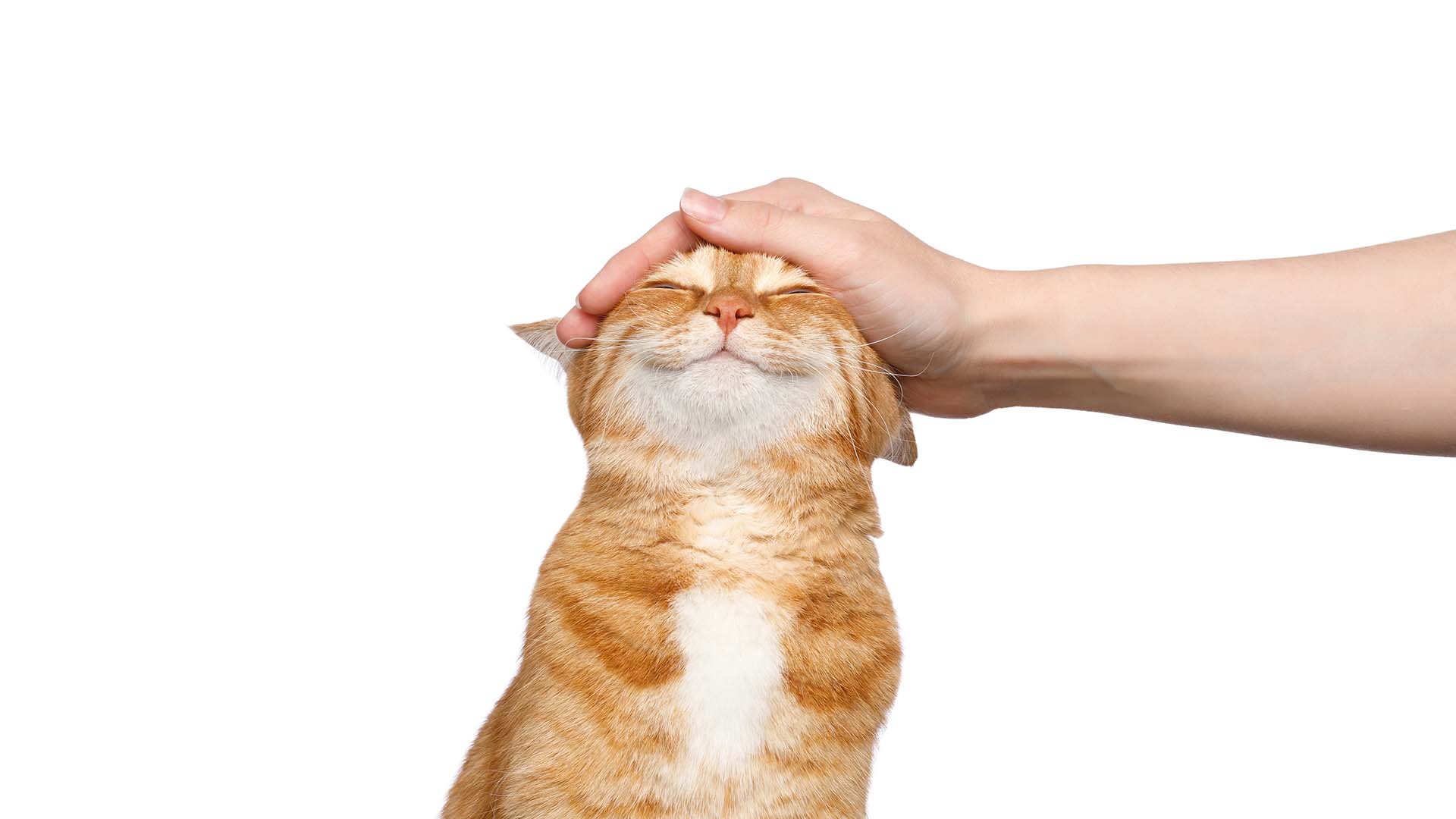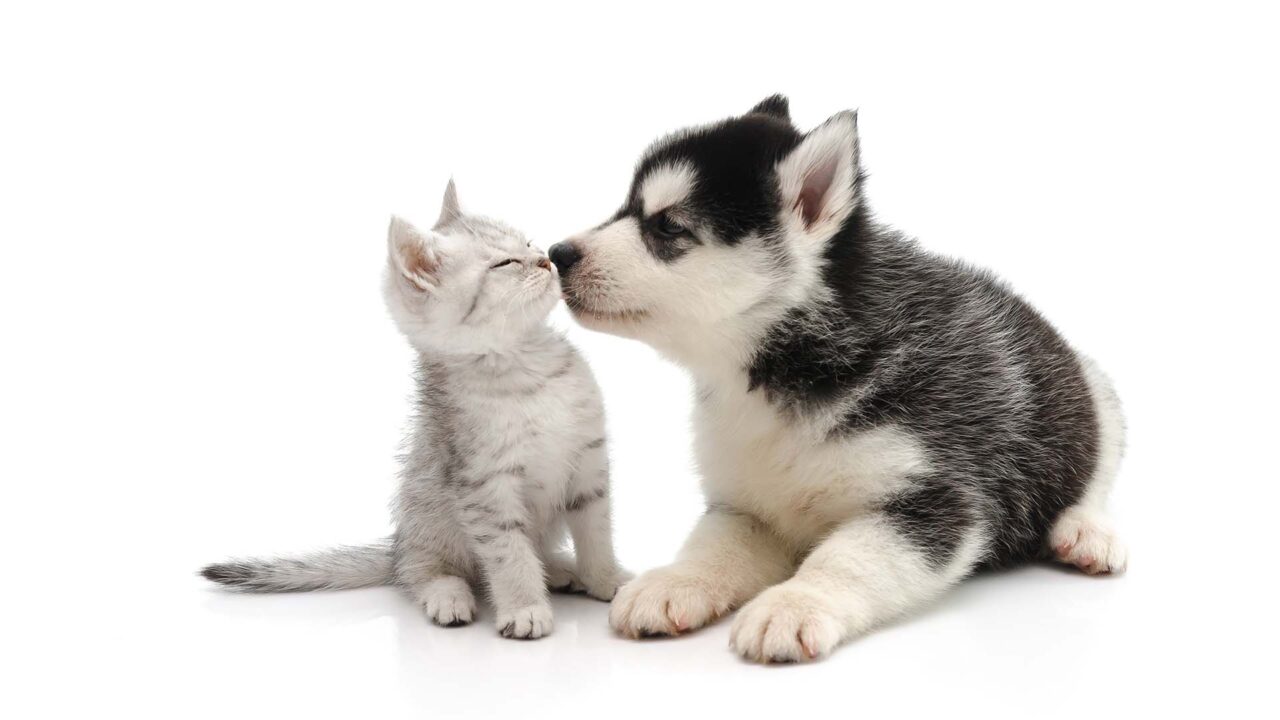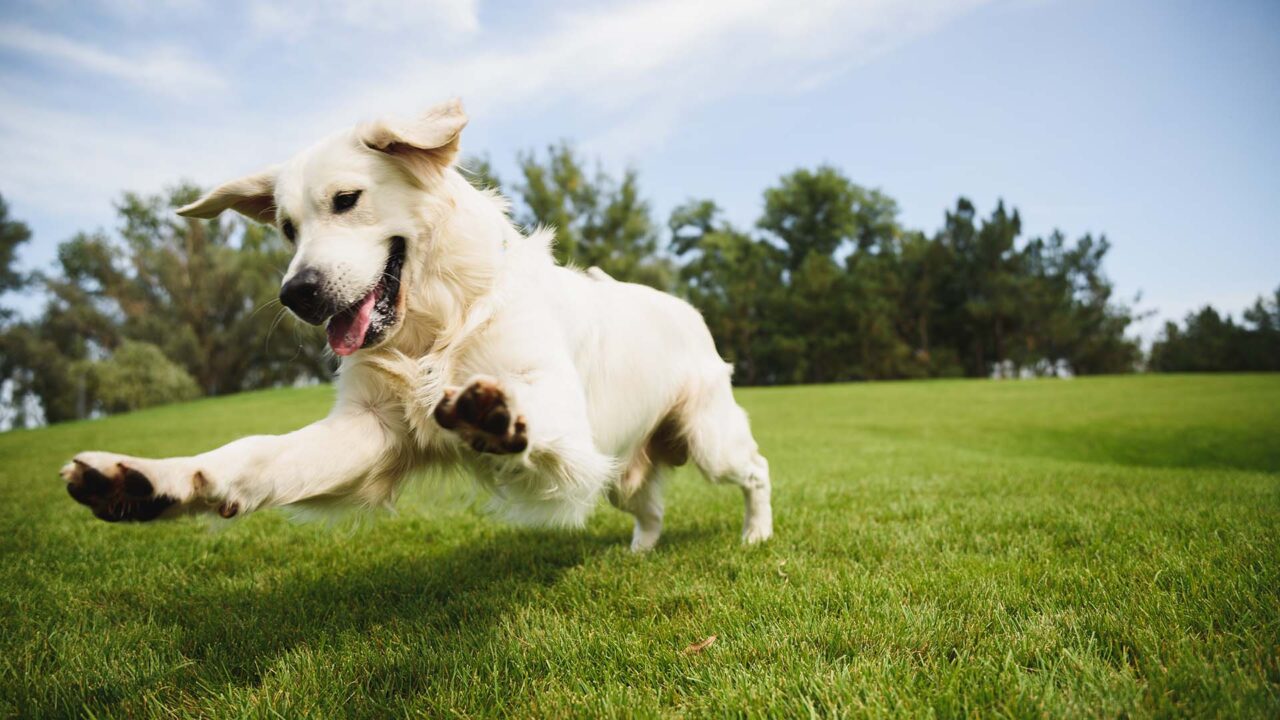A new study reveals the link between pets and happiness
Think your furry friend adds joy to your life? You’re not necessarily barking up the wrong tree.

A recent survey that examined 1,000 pet owners and 1,000 people without pets got some pretty startling results.
It found that people with furry friends tend to spend more time outdoors, exercise more often, feel more loved and just generally be happier than those without a dog or cat, often by significant margins.
This news comes as no surprise to Bill Henry, Ph.D., professor in the Department of Psychological Sciences at Metropolitan State University of Denver and animal expert. He explains to RED why domestic pets have such a positive impact on our lives.
The survey results suggest that people with pets feel more loved and are more likely to be happy. Why is this?
To put things in context: Connectedness to other living beings is vital to our physical and mental health. This likely derives from our evolutionary history, when forming meaningful relationships brought our ancestors significant survival advantages.
Since humans are such social creatures, we find strength and solace in others. That’s why those of us with strong social connections are less likely to suffer from depression, anxiety, addiction and a range of medical conditions, while also enjoying longer lifespans. And frankly, all those mental and physical health benefits that accrue from close relationships with other people can also be found by forging a deep emotional attachment to your pet.

Why do animals appear to be so particularly successful at making us happy?
Domestic animals offer unconditional positive regard. They love us, no matter our faults and foibles. Unlike people, they don’t criticize our actions, let us down or stare at their phones while we’re talking. Even if they knew how, they would never “ghost” us.
In a nutshell: Feeling valued by others and being viewed positively is critical to our psychological health. And fortunately, this is one of the most amazing services our pets provide for us. They are not judgmental. It does not matter what we look like, how much we weigh, what types of clothes we wear. They simply love us. Our pets offer a kind of pure, unfailing devotion that we rarely experience in other relationships, especially as adults.
Pets have become so strongly associated with positive mental health because through their faithfulness, lack of judgment and very nature, they meet the definition of a great friend. And in doing so, they answer a fundamental psychological need in all of us.
How does the sense of responsibility that comes with pets impact their owners?
Having a sense of responsibility for an animal can serve as a buffer against the deleterious effects of various physical or mental-health conditions. One example: People with depression often experience a loss of motivation, and a common therapeutic challenge is encouraging them to stay engaged with their life when they just want to stay in bed all day. In such cases, having another living thing to care for can provide the vital spark of motivation they need. Basically, it’s easier to tell yourself “I have to move because the cat needs me” than “I should move because it will make me feel better.”

Many of us lead fairly static lives, largely based indoors. What benefits accrue from being compelled by pets to regularly get outside and experience the elements?
Research clearly demonstrates the association between outdoor activities and a range of positive physical and mental-health outcomes, particularly among our older population. Going out for a walk is probably one of the best (and easiest) ways to take care of our bodies and minds.
The simple fact is that having a dog makes you much more likely to get outdoors on a regular basis, not to mention taking Fido on occasional longer treks into the mountains. And that spells a big win for both your health and happiness.
RELATED: Denver After Dawn: best ways to exercise your dog
Owning a dog can increase opportunities to meet and chat with other people. As isolation and loneliness among adult Americans hit new highs, how valuable might that be?
A quick anecdote. My wife and I were once in an Istanbul cab with a driver who spoke a little English. All was going normally until my wife mentioned she was a veterinarian. The driver’s face lit up, and he spent the next half hour describing his various pets, grinning from ear to ear the whole time. By the end of the ride, we’d made a real connection with this man that simply wouldn’t have happened without a shared love for animals.
Animals bring us together. For many people, the half hour they spend at the local dog park is an important source of human interaction. And for some, it’s also potentially a chance to build new friendships. When numerous groups here in Denver use social media to organize social activities relating to their pets, such as meetups for specific breed owners, it’s not only the dogs they’re hoping will get along. (Incidentally, few sights are more endearing than 40-plus Corgis bounding around together.)
The survey found that pet owners are 11% more likely to have a significant other. One theory is that someone with a contented pet will themselves appear more likable and attractive.
I could see this working in a few different ways. First, yes — owning a pet might well make someone seem more appealing, in certain circumstances. But as we’ve discussed, the mere fact of owning a pet means you’re more likely to meet other people, which in itself would increase your chances of establishing a romantic relationship.
However, this scenario could easily work the other way around, as well. While I’m not aware of any research on the topic, I can imagine many couples, especially in the earlier stages of a serious relationship, adopting a pet to “round out” their family unit prior to having children. So it might well be that being in a relationship makes it more likely you’ll have a pet, rather than vice versa. But however you end up owning a furry friend, it’ll likely be one of your better decisions.





